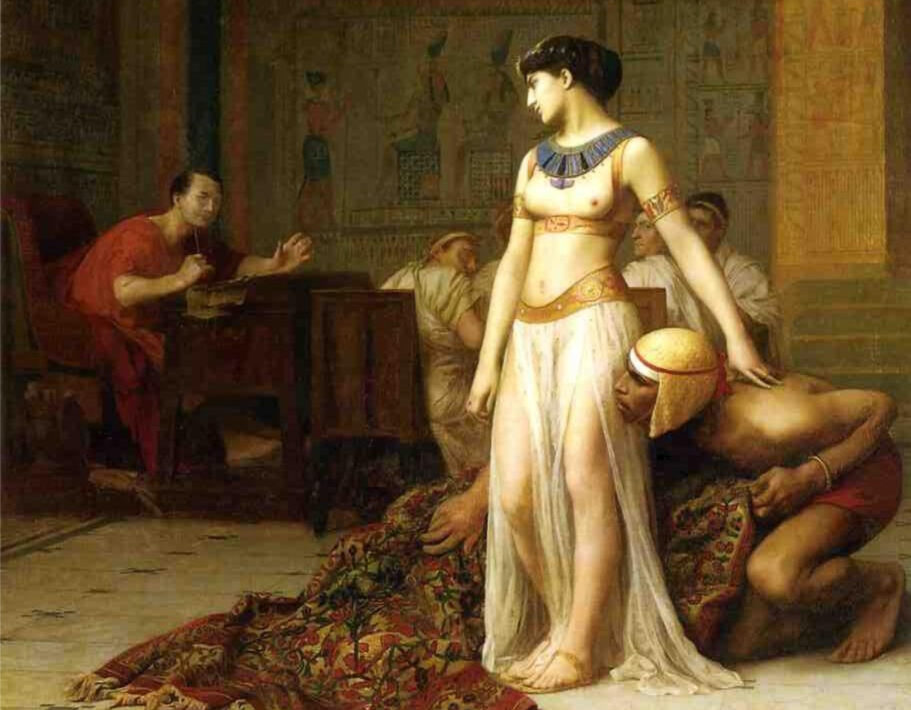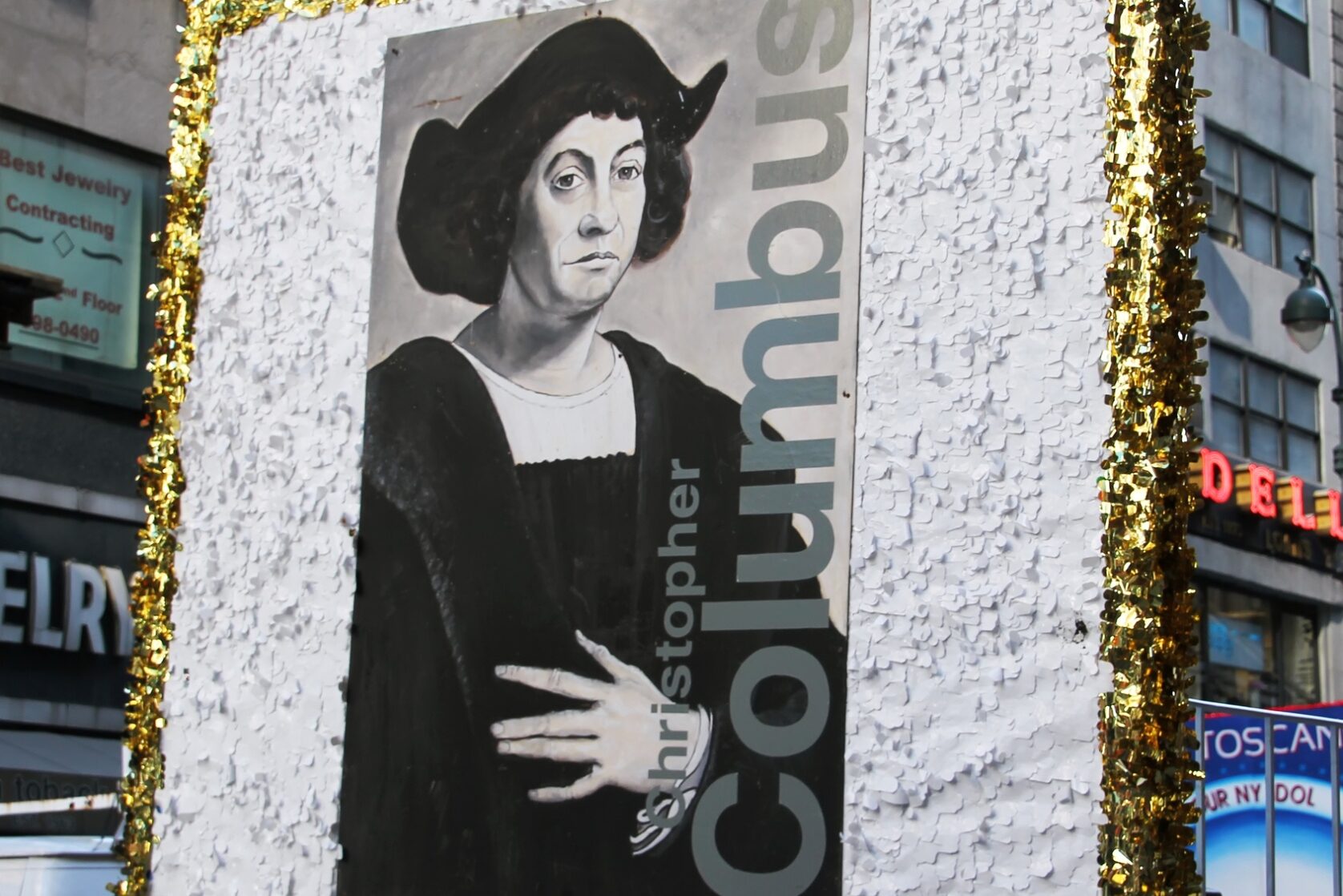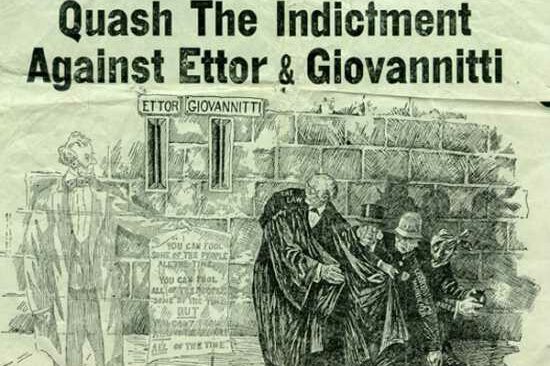Dear Readers,
March, the third month of the year has 31 days and is short for Martius mensis, “the month of Mars.” In Roman mythology, Mars was the god of war and agriculture. Nerio, a minor Roman goddess was his wife. Jupiter (Zeus), the supreme Roman god of the skies, rain, and weather was his father. Juno (Hera), goddess of marriage and daughter of Saturn, was his mother.
***
March — Marzo, has many dates with an “Italian Connection:”
- Julius Caesar, 100-44 BC, the greatest of all Caesars, roman statesman and general, it’s said, laughed at a soothsayer’s warning to “beware the Ides of March.” A successful plot for his assassination took place on March 15th, 44BC, done by the hand of his trusted adoptive son and is considered the most famous of classical betrayals.
- D.H. Lawrence, 1885-1930, the controversial English novelist and poet, author of Lady Chatterley’s Lover and Women in Love, died of tuberculosis in Italy, on March 2, 1930.
- The Star-Spangled Banner officially became America’s National Anthem on March 3, 1931. Italian-Americans stood proudly to sing it, especially in 1936 while watching newly hired rookie Joe DiMaggio playing for the New York Yankees at their namesake stadium.
- Antonio Meucci, born in Florence, applied for a patent for what was to be the telephone in 1871. Alexander Graham Bell applied for a patent in 1876 and Edison’s carbon refinement is dated 1877. Italians in Italy and Italian-Americans felt they were “robbed,” after Bell prevailed in American Supreme Court litigation (because Meucci’s provisional patent expired in 1873) therefore they will not be celebrating Bell’s March 4 birthday anniversary.
- Pier Paolo Pasolini, Italian film director (Decameron, Arabian Nights), poet, and novelist (Ragazzi di Vita), was born on March 5, 1922, in Bologna. Police arrested a seventeen-year-old male after Pasolini was found murdered on the outskirts of Rome in 1975.
- Michelangelo Buonarroti, born on March 6, 1475, near Florence, was an artist, sculptor, architect, and poet. He painted The Creation of Man, and some of the most beautiful paintings in the world, on the ceiling of the Sistine Chapel in Rome. His statues of David and Moses are masterpieces in marble and his dome of St. Peter’s established him as one of Italy’s foremost architects. He died in 1564, and was almost ninety years old, an exceptional age for the time.
- Anna Magnani, internationally celebrated Italian film star, was on born March 7, 1908, to moderately prosperous Italian immigrants in Alexandria, Egypt, but since her early characterizations had made her the emotional symbol of Italian peasantry and proletariat, her middle-class beginnings were de-emphasized. Divorced from Italian film director Goffredo Alessandrini in 1943, she worked as a bit actress in films and on stage in order to pay the enormous medical expenses for her polio-stricken son Luca, until her big break in 1946, when she burst upon American audiences as the pregnant fiancée of an Italian resistance leader in Open City, directed by Roberto Rossellini. In 1955, she won an Academy Award for her first Hollywood portrayal in Tennessee Williams’s The Rose Tattoo. Open City, the movie that brought her fame and fortune, also brought her heartbreak as the movie brought Rossellini to the attention of Hollywood actress Ingrid Bergman and eventually precipitated an international scandal, which catapulted the Sicilian island of Stromboli into the spotlight, along with Rossellini and the two actresses in his life.
- International Women’s Day honors the world’s women. Women’s Day was first proclaimed on March 8, 1910, to commemorate a protest by female garment workers in New York City in 1857, and is a holiday born out of women’s struggles for suffrage, decent working conditions, and other human rights. Many Italian females entered the garment industry as low-paid workers and were exploited by factory owners in the Eastern states. “We want bread and roses, too” was a sign carried in 1912 by young Italian-American women striking a textile mill in Lawrence, Massachusetts. The 1912 strike resulted in national sympathy for the exploited Italian workers in America. The phrase “Bread and Roses” became the title of a poem written about the strike, and A. Giovanitti wrote an Italian song, Pane e Rose, which was popular with the Italian dressmakers of the International Ladies Garment Union.
- Lorenzo Da Ponte, born in March 1749. The esteemed librettist who provided verses to the operatic scores of such great composers as Mozart and Salieri also became the first and foremost purveyor of Italian culture in the United States. Arriving here in 1805, Da Ponte taught Italian language and literature at several American colleges, including Columbia University which he had a hand in founding. He was also largely responsible for introducing opera to this country, via his popular librettos for Mozart’s The Marriage of Figaro, Don Giovanni, and Così fan Tutte.
Cari lettori,
Marzo, il terzo mese dell’anno, ha 31 giorni ed è l’abbreviazione di Martius mensis, “il mese di Marte”. Nella mitologia romana, Marte era il dio della guerra e dell’agricoltura. Nerio, una dea romana minore, era sua moglie. Giove (Zeus), il supremo dio romano dei cieli, della pioggia e del tempo, era suo padre. Giunone (Era), dea del matrimonio e figlia di Saturno, era sua madre.
***
Marzo – ha molte date con una “Italian Connection”.
– Giulio Cesare, 100-44 a.C., il più grande di tutti i Cesari, statista e generale romano, si dice che abbia riso dell’avvertimento di un indovino di “guardarsi dalle Idi di marzo”. Un complotto riuscito per il suo assassinio ebbe luogo proprio il 15 marzo 44 a.C., per mano del suo fidato figlio adottivo, ed è considerato il più famoso dei tradimenti classici.
– D.H. Lawrence, 1885-1930, controverso romanziere e poeta inglese, autore di L’amante di Lady Chatterley e Donne in amore, muore di tubercolosi in Italia, il 2 marzo 1930.
– La Star-Spangled Banner divenne ufficialmente l’inno nazionale americano il 3 marzo 1931. Gli italo-americani si sono alzati in piedi con orgoglio per cantarlo, soprattutto nel 1936 mentre guardavano il novellino Joe DiMaggio giocare per i New York Yankees nel loro omonimo stadio.
– Antonio Meucci, nato a Firenze, chiese il brevetto per quello che sarebbe stato il telefono nel 1871. Alexander Graham Bell chiese il brevetto nel 1876 e il perfezionamento del carbonio di Edison è datato 1877. Gli italiani in Italia e gli italo-americani si sono sentiti “derubati”, dopo che Bell ha prevalso in una causa della Corte Suprema americana (perché il brevetto provvisorio di Meucci era scaduto nel 1873) e quindi non festeggeranno l’anniversario del compleanno di Bell il 4 marzo.
– Pier Paolo Pasolini, regista italiano (Decameron, Arabian Nights), poeta e romanziere (Ragazzi di Vita), nasce il 5 marzo 1922 a Bologna. La polizia arrestò un diciassettenne dopo che Pasolini fu trovato assassinato alla periferia di Roma nel 1975.
– Michelangelo Buonarroti, nato il 6 marzo 1475 vicino a Firenze, è stato un artista, scultore, architetto e poeta. Ha dipinto La creazione dell’uomo e alcuni dei dipinti più belli del mondo, sul soffitto della Cappella Sistina a Roma. Le sue statue di Davide e Mosè sono capolavori in marmo e la sua cupola di San Pietro lo ha consacrato come uno dei più importanti architetti italiani. Morì nel 1564, a quasi novant’anni, un’età eccezionale per l’epoca.
– Anna Magnani, star del cinema italiano celebrata a livello internazionale, era nata il 7 marzo 1908 da immigrati italiani moderatamente benestanti ad Alessandria d’Egitto, ma poiché le sue prime caratterizzazioni l’avevano resa il simbolo emotivo dei contadini e dei proletari italiani, le sue origini borghesi furono messe in secondo piano. Divorziata dal regista italiano Goffredo Alessandrini nel 1943, lavorò come piccola attrice al cinema e sul palcoscenico per pagare le enormi spese mediche per il figlio Luca, malato di poliomielite, fino alla grande occasione del 1946, quando si presentò al pubblico americano come la fidanzata incinta di un leader della resistenza italiana in Città aperta, diretto da Roberto Rossellini. Nel 1955 vince l’Oscar per la sua prima interpretazione hollywoodiana in Il tatuaggio della rosa di Tennessee Williams. Città Aperta, il film che le portò fama e fortuna, le portò anche l’amore: il film portò Rossellini all’attenzione dell’attrice hollywoodiana Ingrid Bergman e alla fine fece scoppiare uno scandalo internazionale, che catapultò l’isola siciliana di Stromboli sotto i riflettori, insieme a Rossellini e alle due attrici della sua vita.
– La Giornata internazionale della donna onora le donne di tutto il mondo. La Giornata della Donna è stata proclamata per la prima volta l’8 marzo 1910, per commemorare una protesta delle lavoratrici tessili a New York nel 1857, ed è una festa nata dalle lotte delle donne per il suffragio, per condizioni di lavoro dignitose e per altri diritti umani. Molte donne italiane entrarono nell’industria dell’abbigliamento come lavoratrici sottopagate e furono sfruttate dai proprietari delle fabbriche negli Stati dell’Est. “Vogliamo anche il pane e le rose”, recitava un cartello portato nel 1912 da giovani donne italo-americane in sciopero in una fabbrica tessile di Lawrence, nel Massachusetts. Lo sciopero del 1912 portò alla solidarietà nazionale per i lavoratori italiani sfruttati in America. La frase “Bread and Roses” (pane e rose) divenne il titolo di una poesia scritta sullo sciopero e A. Giovanitti scrisse una canzone italiana, Pane e Rose, che fu popolare tra le sarte italiane dell’International Ladies Garment Union.
– Lorenzo Da Ponte, nato nel marzo 1749. Lo stimato librettista che ha dato i versi alle partiture delle opere di grandi compositori come Mozart e Salieri è diventato anche il primo e principale divulgatore della cultura italiana negli Stati Uniti. Arrivato qui nel 1805, Da Ponte insegnò lingua e letteratura italiana in diversi college americani, tra cui la Columbia University, che contribuì a fondare. Fu anche il principale responsabile dell’introduzione dell’opera lirica in questo Paese, grazie ai suoi popolari libretti per Le nozze di Figaro, Don Giovanni e Così fan tutte di Mozart.






























